Introducing the central laboratory complex of Machine Sazi Arak (MSA)
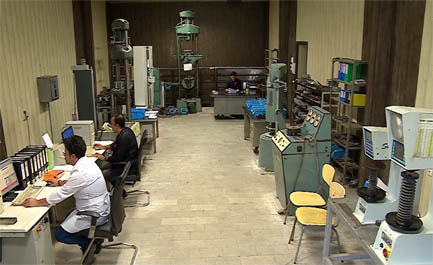 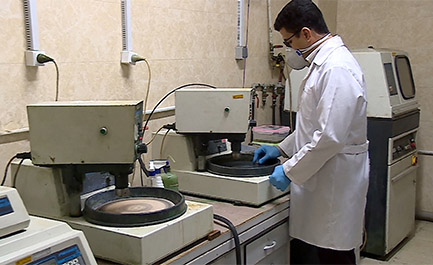 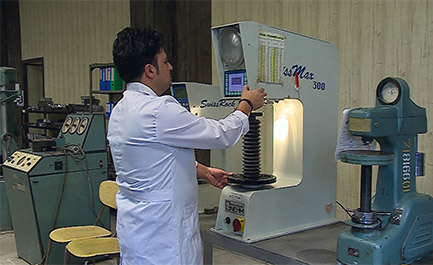
This Laboratory with more than 40 years of experience in providing laboratory services to production groups inside and outside the company is currently providing services in the following areas based on current and international standards of tests and using equipment and devices calibrated by the qualified centers in destructive testing section and the non-destructive testing section.
Laboratory services
• Mechanical testing laboratory
• Flat and round tensile test with full cross-section up to a force of 100 tons
• Tensile test with screw specimens fixture as full size
• Bending test of welded specimens, sheets and rebar and comparison with relevant standards
• Preparation and notching of impact samples up to 300 joules of energy from ambient temperature up to -196 ° C
• Test for flattening of the pipes internal opening according to the standard
Break Test on welding samples
• Tensile test of complete cross section of tow wire up to a capacity of 100 tons
• Brinell, Vickers, Rockwell macro hardness test (B, A, C)
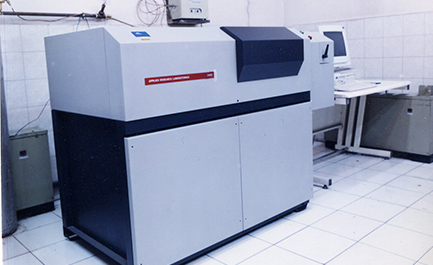
Metallography Laboratory
• Special and ordinary metallography
• Determination of thickness and quality of coating (by metallographic method as well as portable thickness gauge device(
• Micro Vickers hardness testing (from 10 g to 1000 g)
• Macro etching (welding, ordinary parts and complex parts) to check the production process such as forging or casting
• Microscopic examination of the structure
• Determination of impurities in steels
• Determining the hardness profile of areas based on relevant standards
• Determining pipe seamless via metallographic and macro graphic methods
• Investigation of microscopic and macroscopic defects of parts
• Micro hardness measurement for hardness measurements of different coatings and phases
Chemical analysis laboratory (quantum and XRF)
• Analysis of iron base samples: carbon steels, alloys, stainless steels and super alloys
• Determination of alloy and sample material
• Measure 21 elements in iron base such as silicon carbon and nitrogen
• Measurement of molten soluble gases including oxygen, hydrogen and nitrogen gases with an accuracy less than PPM10
• Possibility of portable analysis with XRF device for iron, nickel, titanium and copper bases.
Traction machine with capacity of 40 tons
This machine is made by the German company Zwick and is used to perform tensile testing for raw materials and welded parts. By replacing its jaws, both parts up to 12 mm thick and round parts up to 25 mm in diameter can be tested. This device has an extensometer. It is connected to the device, which can also measure the amount of increase in length, and with the software that is on its system, shows the amount of force applied instantaneously, and at the end, draws the corresponding stress-strain graph that shows the final yield point and strength. The piece is marked on the chart
Traction machine with capacity of 100 tons
This device is also made by the German company Zwick, which is unique in terms of accuracy and amount of applied force in the country, and in addition to having the features of the above device, it has the ability to test parts up to 120 mm thick.
Impact device with a capacity of 300 joules
This impact test machine with a capacity of 300 joules is made by Centam Co. Impact test specimens are prepared by the prototyping workshop and the length, groove depth and angle of the specimens are controlled by a light microscope. The hammer of this device operates electrically and is updated in its kind. The impact test temperature is controlled by a digital thermometer capable of displaying up to -196 °C
Hardness testing machine
The mechanics laboratory has two Swiss hardness testers and a Russian hardness tester. A variety of hardness scales including Brinell hardness, Rockwell method and Vickers method can be measured with these devices, all of which have block test devices. Test blocks have a certificate from the manufacturer or other companies, and before starting, these devices.
Micro hardness equipment
The micro hardness device is made by the German company BUEHLER and has the ability to measure the hardness of phases and coatings with a load value from 10 to 1000 grams. With this device, it is possible to report hardness based on Vickers and Knopp method for different phases and coatings in the metallurgical laboratory.
Optical microscope
The light microscope device is made by the German company BUEHLER and has the ability to observe the microstructure of the samples from 50 to 1000 times magnification.
Quantum analysis devices
These devices are made by the American company ARL (with the new name of Thermo), which are capable of chemical analysis with very high accuracy and speed, and are able to analyze steels in less than one minute
Quantometric analysis devices
These devices are made by ARL America (with the new name of Thermo), which are capable of chemical analysis with very high accuracy and speed, and are able to determine the analysis of steels in less than one minute. These devices are capable of measuring 21 elements including carbon, silica, sulfur, phosphorus, manganese, nickel, chromium, molybdenum, copper, aluminum, vanadium, titanium, niobium and .... The basis of analysis of these devices is iron. There are currently two quantum analyzers in the Central Laboratory, one capable of analyzing 17 elements and the other 21 elements.
Calibration and service of these devices are performed periodically and regularly by specialized companies and are calibrated daily based on international standard samples for analysis.
Stroline gas measuring devices
These devices are made by the German company Stroline. MSA is one of the few companies with gas measuring devices. In this laboratory, there are 2 samples of these devices that are able to measure the amount of hydrogen, oxygen and nitrogen of the melting samples with ppm accuracy. One of the experiments that has been used continuously during the past years is measuring the amount of bandage melting gases, which has been required in preparing train wheels for the Railway Company of the Islamic Republic of Iran according to the standard.
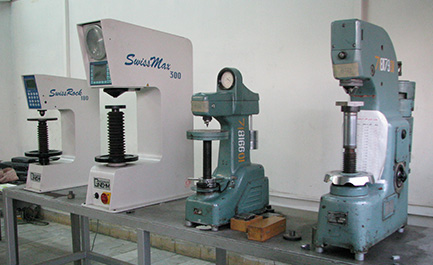
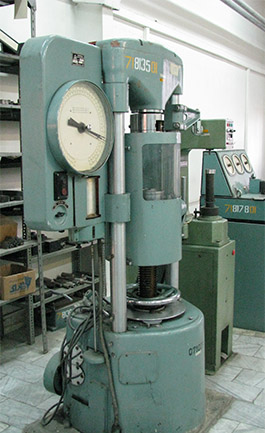
| 





